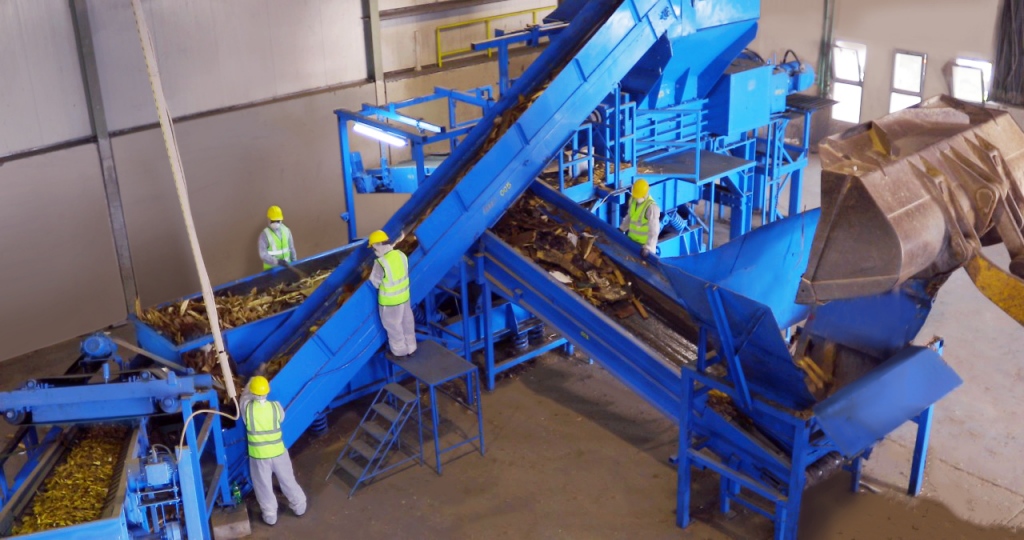
Bee’ah Expands Portfolio of Zero-waste Solutions with Launch of Biomass Facility
Bee’ah, the Middle East’s sustainability pioneer, officially launched its new Biomass Facility at the Bee’ah’s Waste Management Complex in Al Sa’jaa, Sharjah. The plant will process 200 tonnes of cellulous and carbon-based waste daily, the equivalent mass of 16 standard school buses, to generate alternative fuel for industrial manufacturing as part of the UAE’s push towards a circular economy.
Bee’ah overcame logistical challenges posed by the COVID-19 pandemic, to complete the facility in June 2020, while continuing its essential waste processing, recycling and treatment operations, uninterrupted.
The new Biomass Facility first segregates cellulous- and carbon-based waste from construction, furniture, biological and bulky waste collected by Bee’ah from residential and commercial areas. The waste is then processed and converted into alternative fuel for cement factories and papermills, helping to reduce fossil fuel consumption and total energy costs for these industries. The plant will also reduce the amount of waste sent to landfills, supporting the UAE Government's Vision 2021 of diverting waste from landfills by 75 percent.
HE Khaled Al Huraimel, Group CEO of Bee’ah, said: “Bee’ah is keen to leverage its experience in integrated waste management to expand its current portfolio of zero-waste solutions. We actively invest in R&D and strategic partnerships to develop innovative projects and solutions that allow us to increase our recycling capabilities and help drive the UAE’s circular economy. We firmly believe in the need to recapture value from waste and reintegrate materials back into the economy, helping to save precious natural resources, mitigate environmental impact and divert waste from overly used landfills.”
The alternative fuel, produced by the Biomass Facility, took 1.5 years to develop and was done in full collaboration with end-users. Using state-of-the-art technology, the project was conceptualised to meet a gap in the market for treating cellulous- and carbon-based waste, as well as to offer alternatives to fossil fuels.
Earlier this month, Bee’ah also announced a partnership with European environment protection company Polyeco to develop an alternative raw material facility that processes marine waste and pollution. Both these projects complement Bee’ah’s rapidly growing portfolio of zero-waste solutions and recycling facilities that offer value to the UAE’s burgeoning circular economy.
Last year, the company also launched an Industrial Waste Water Treatment Plant to treat 300m³ of industrial-contaminated water and waste water daily. The plant produces clean water that can be returned to the water cycle, with minimal impact on the environment.



























